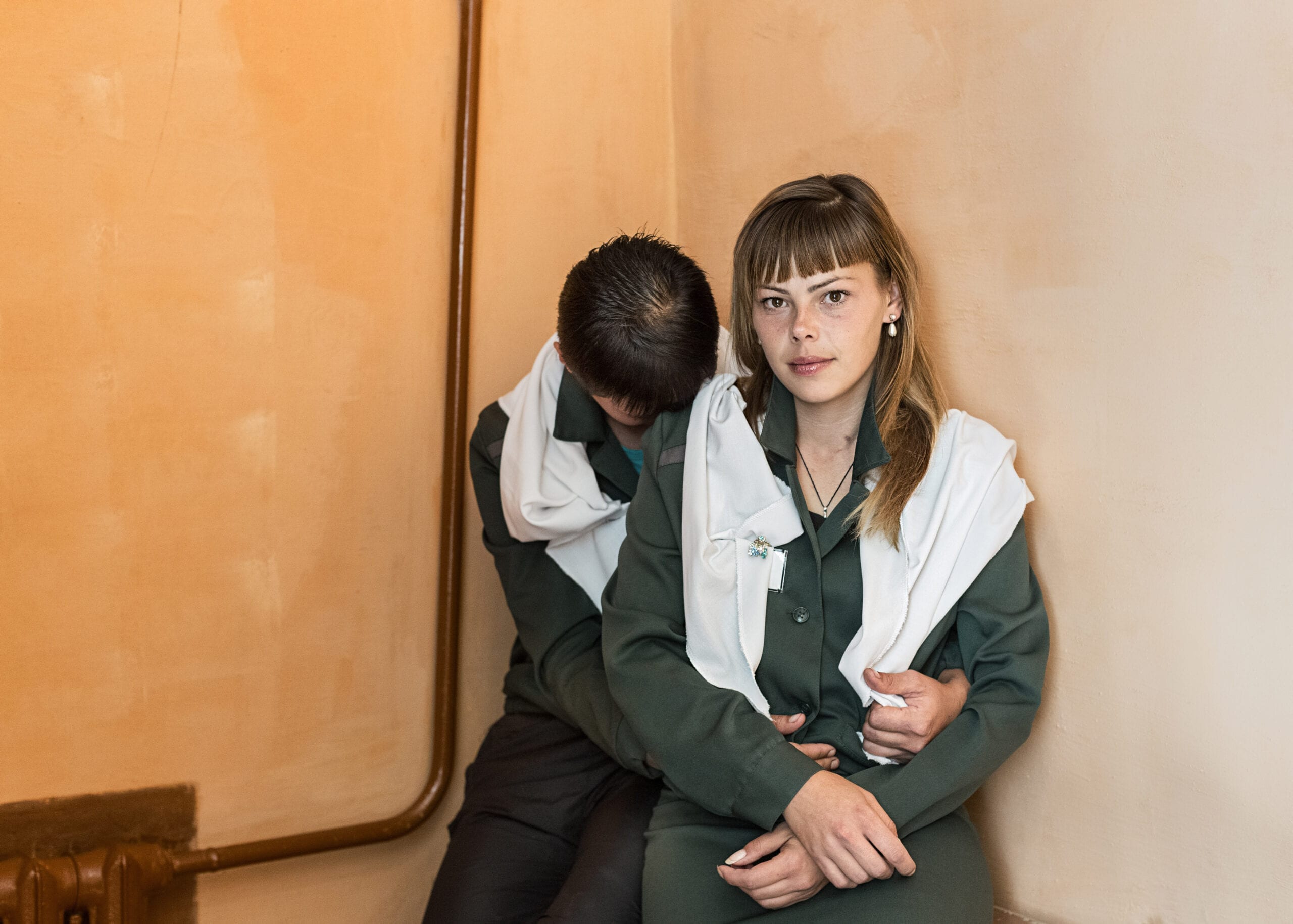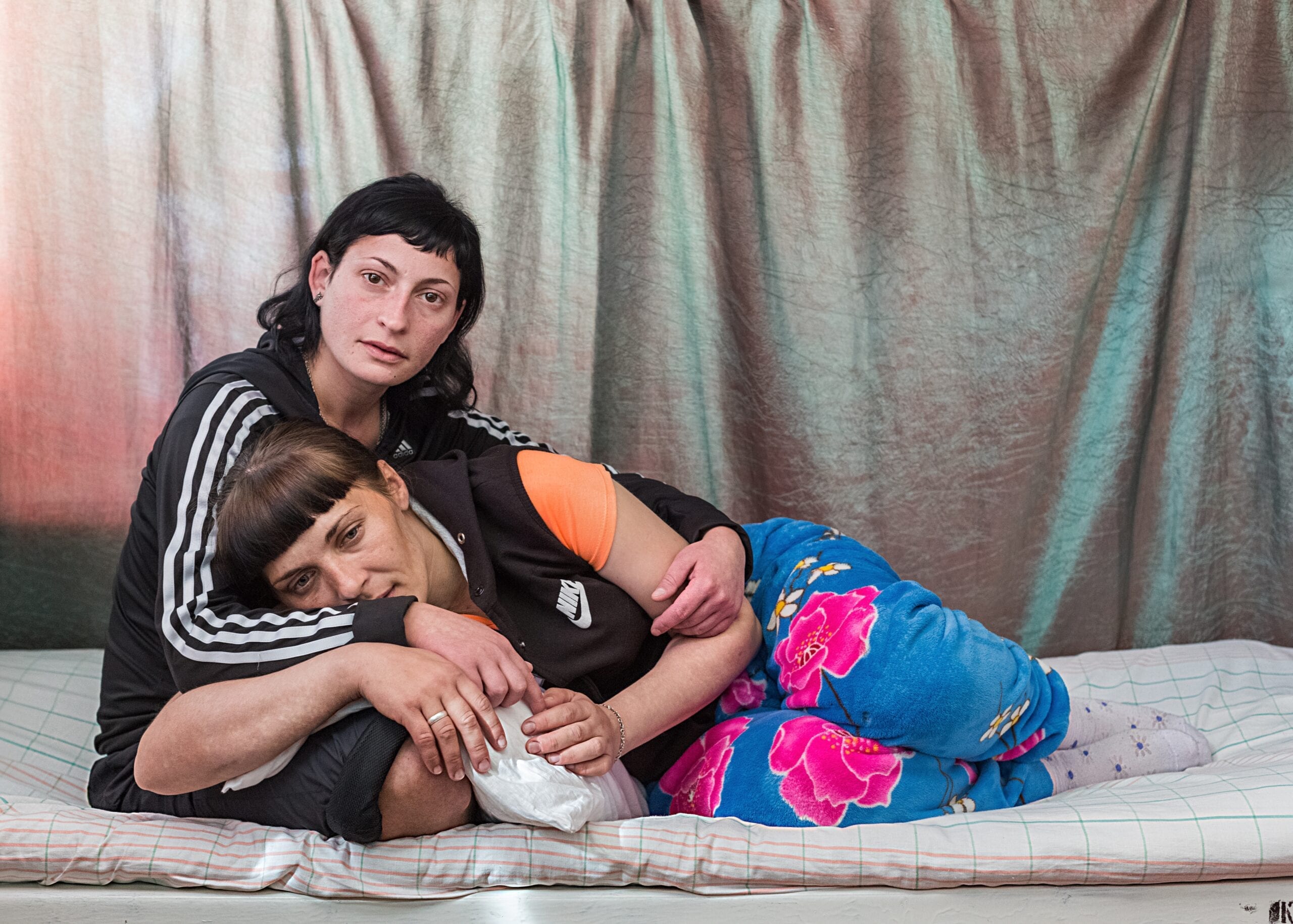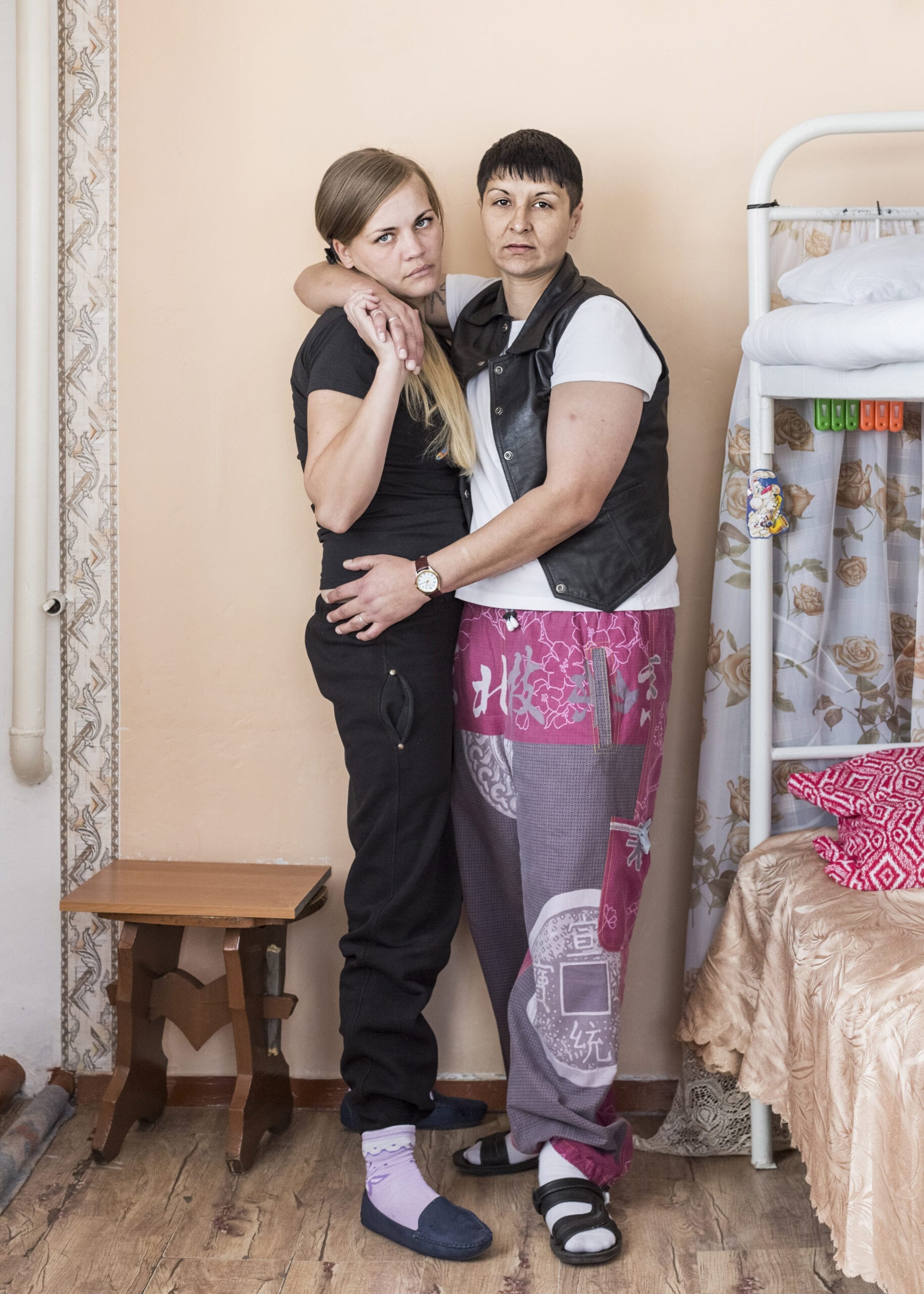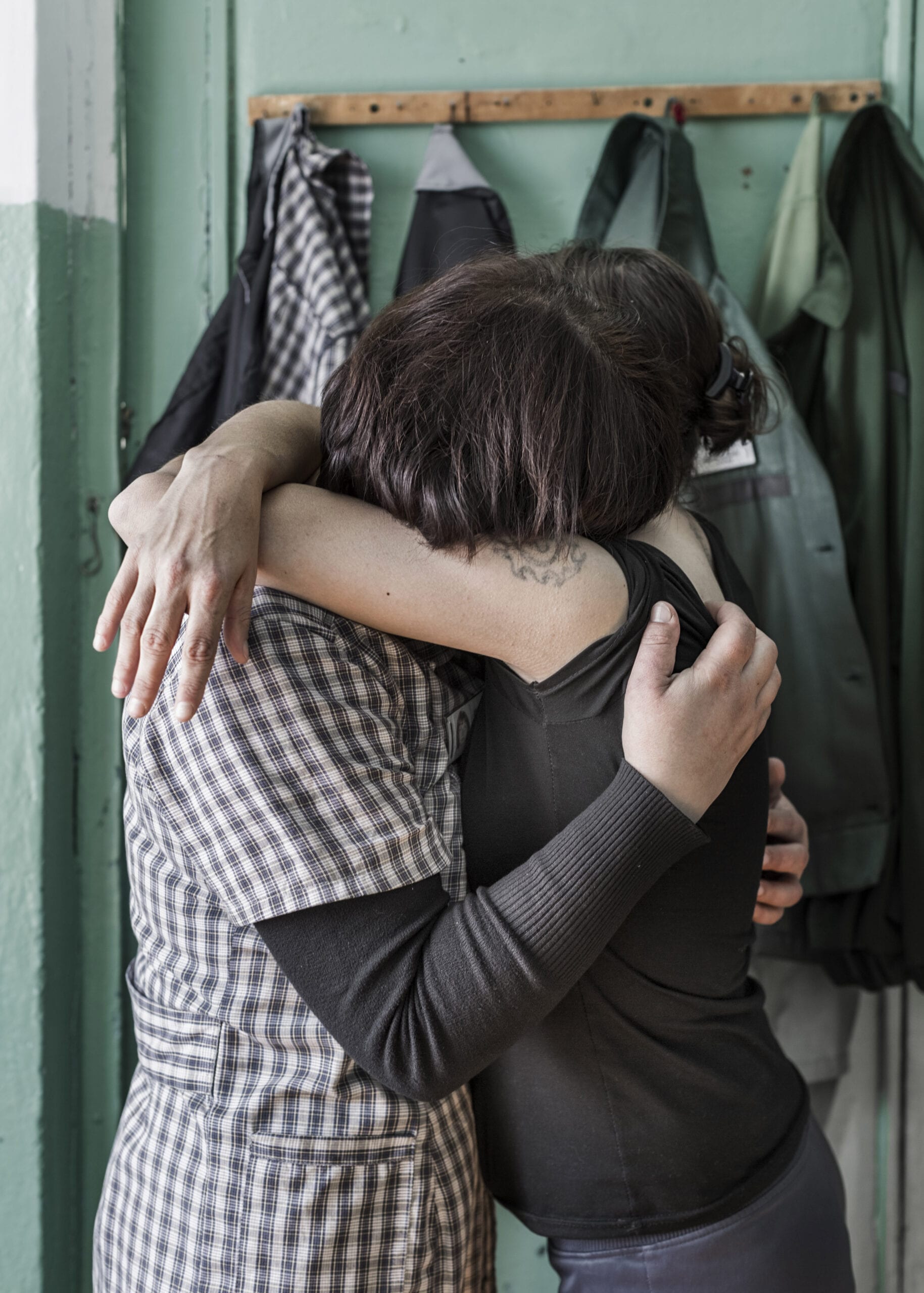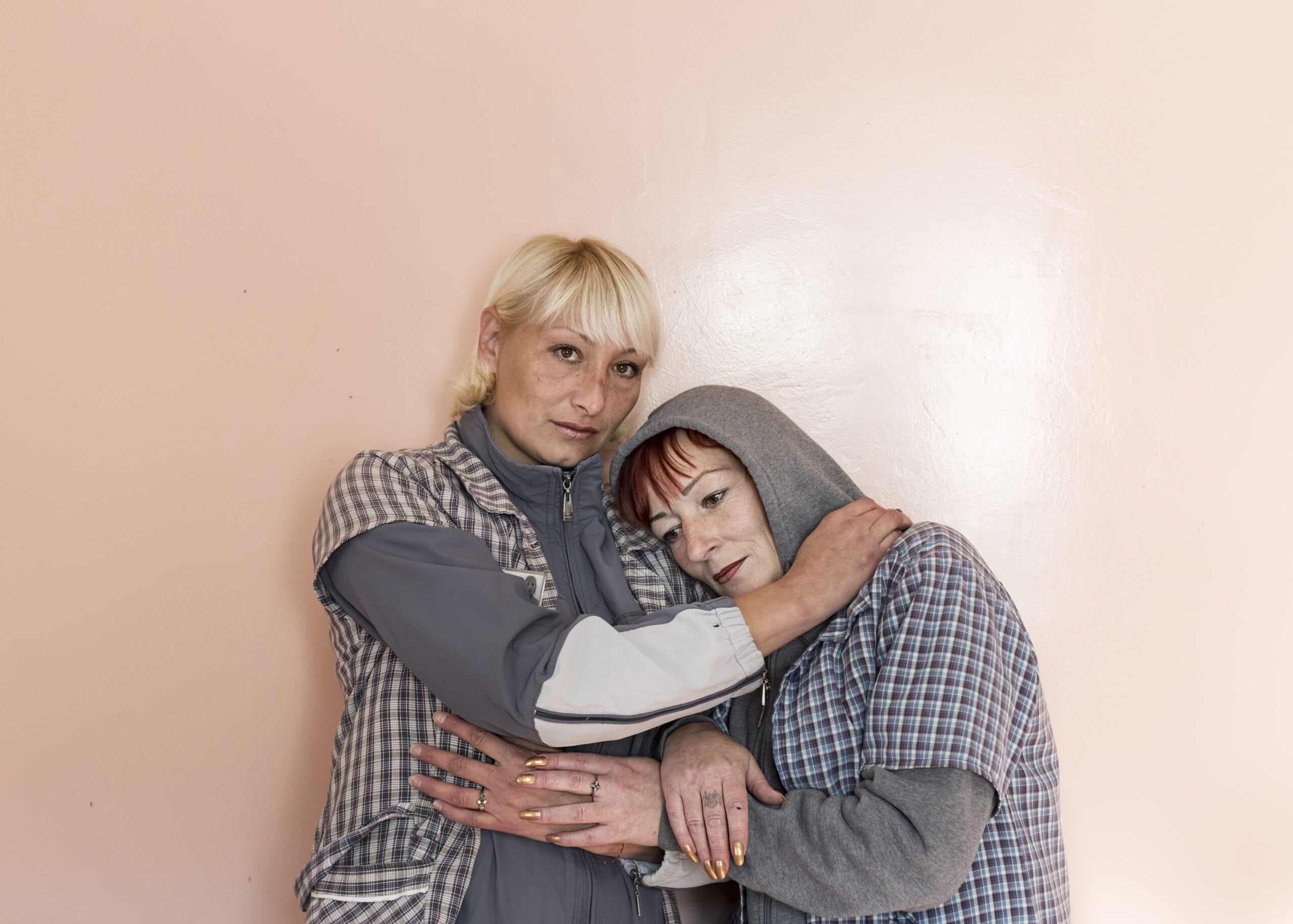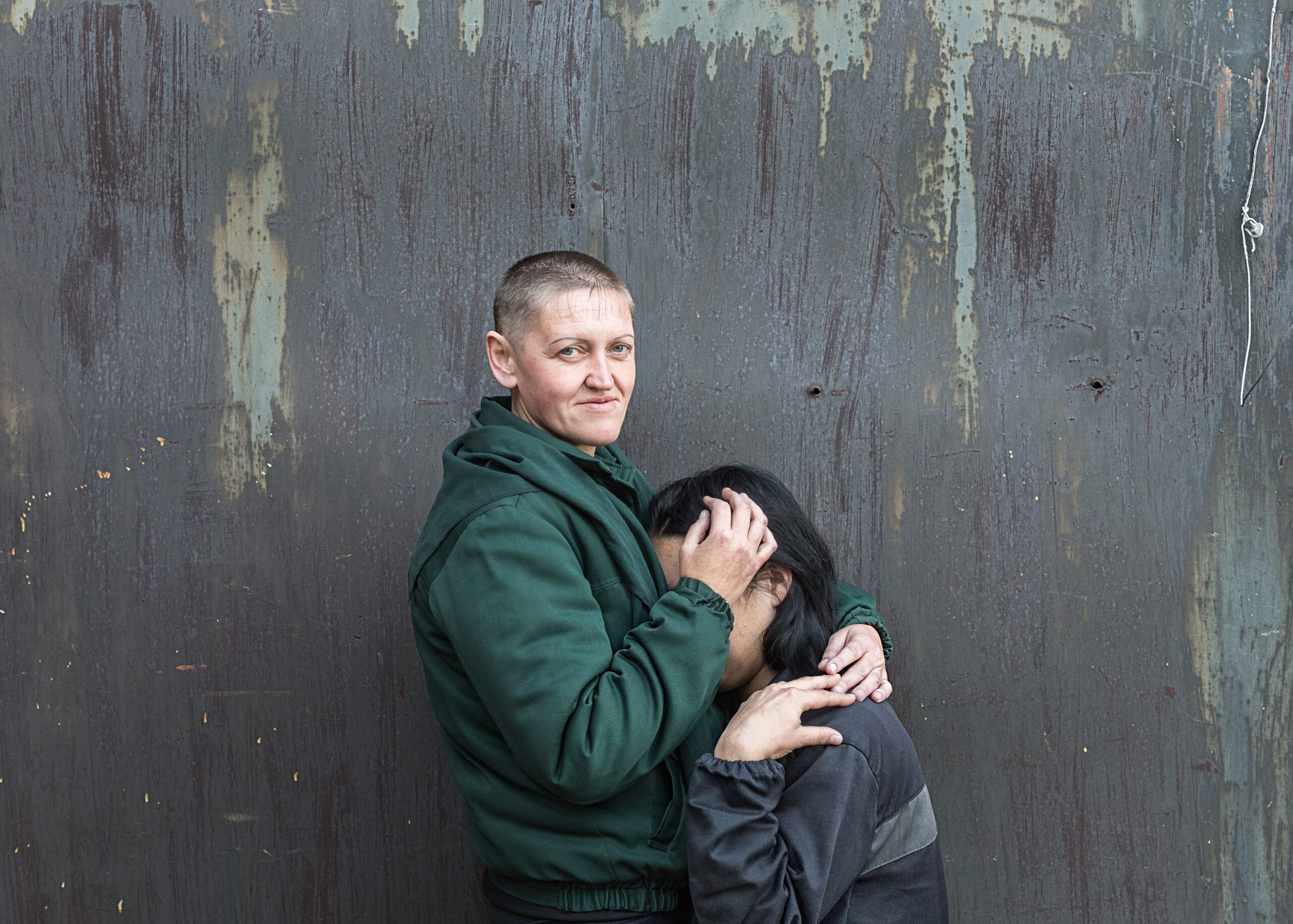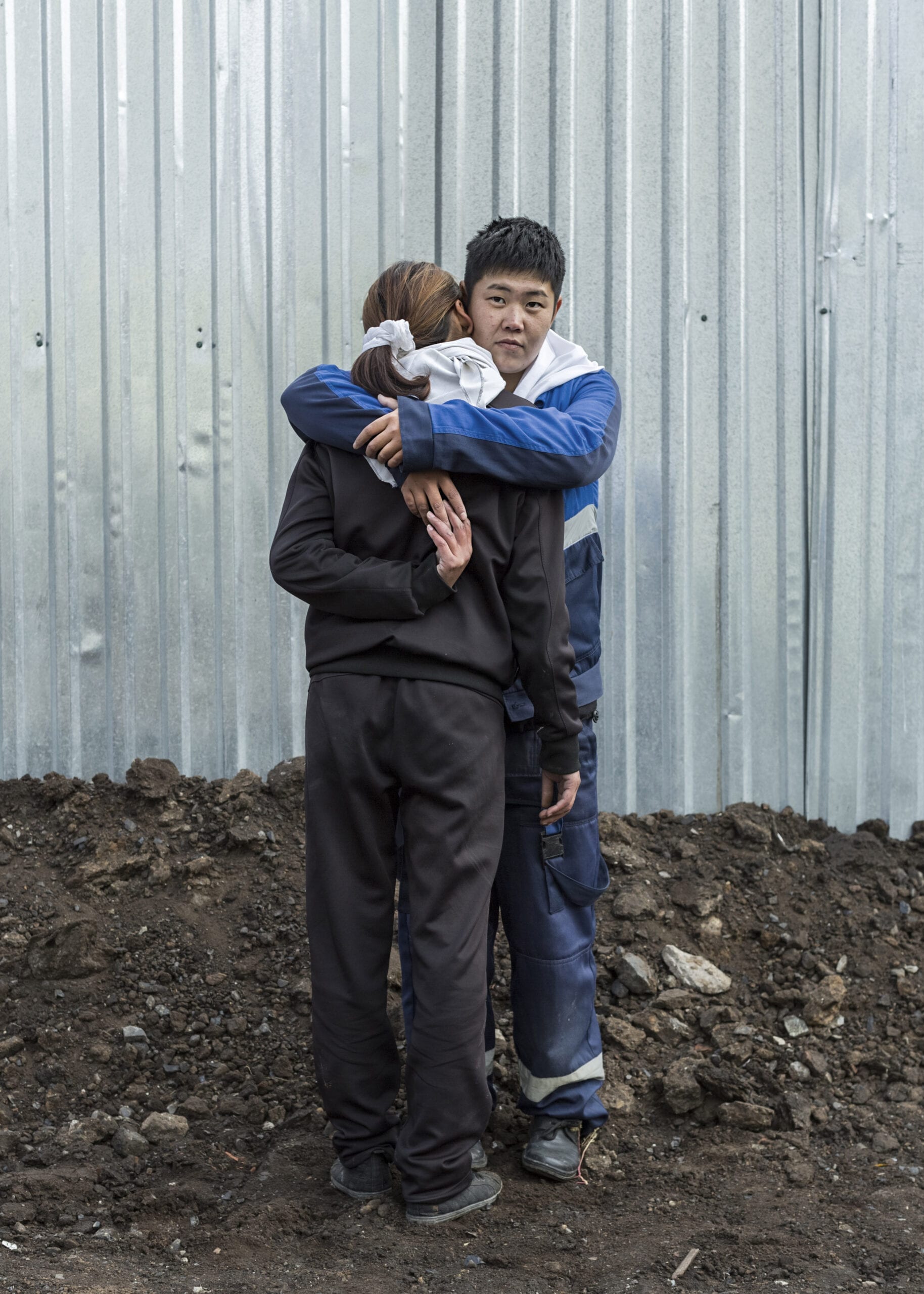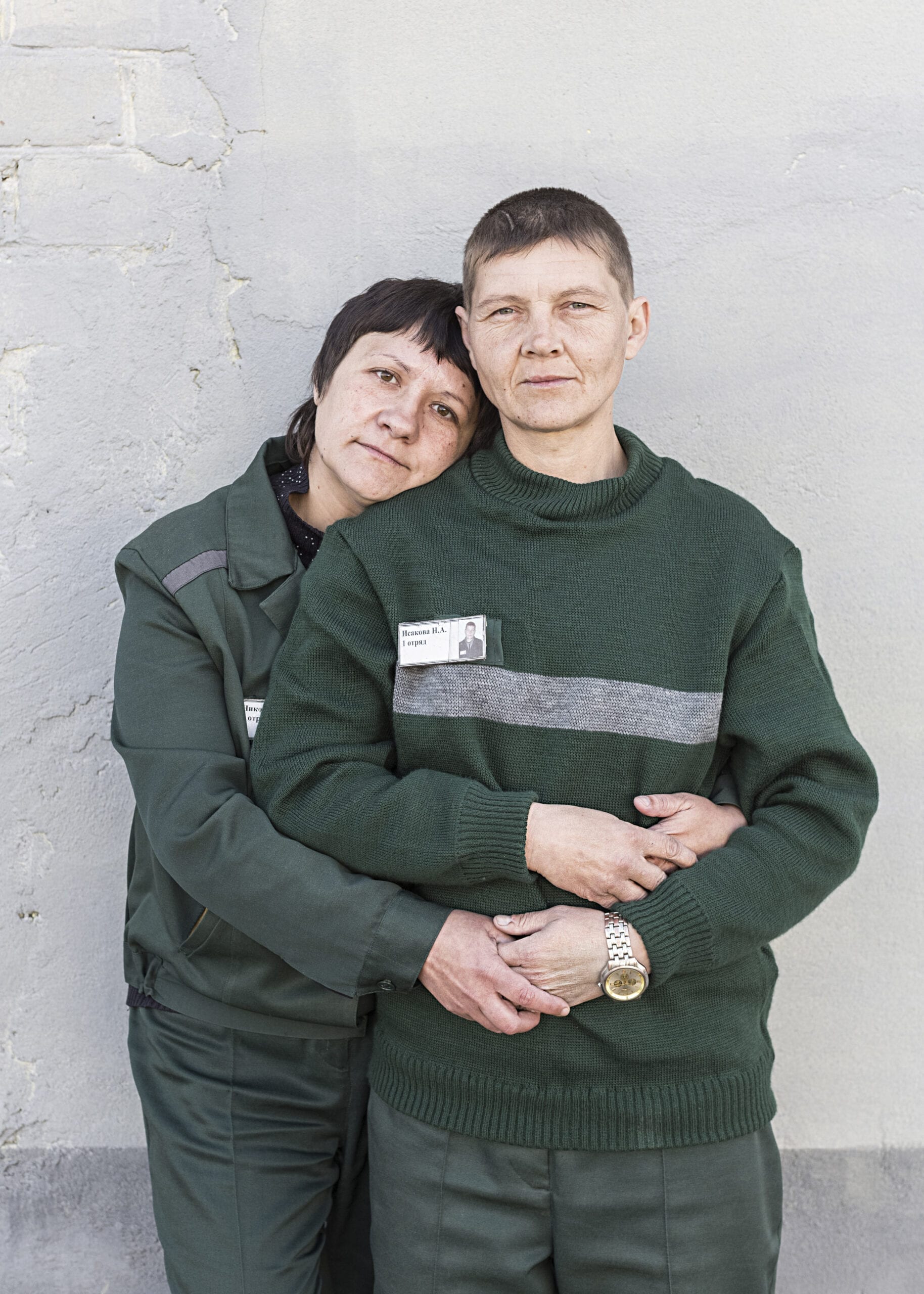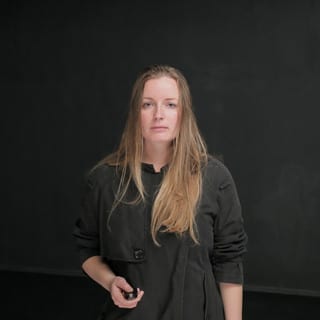Section
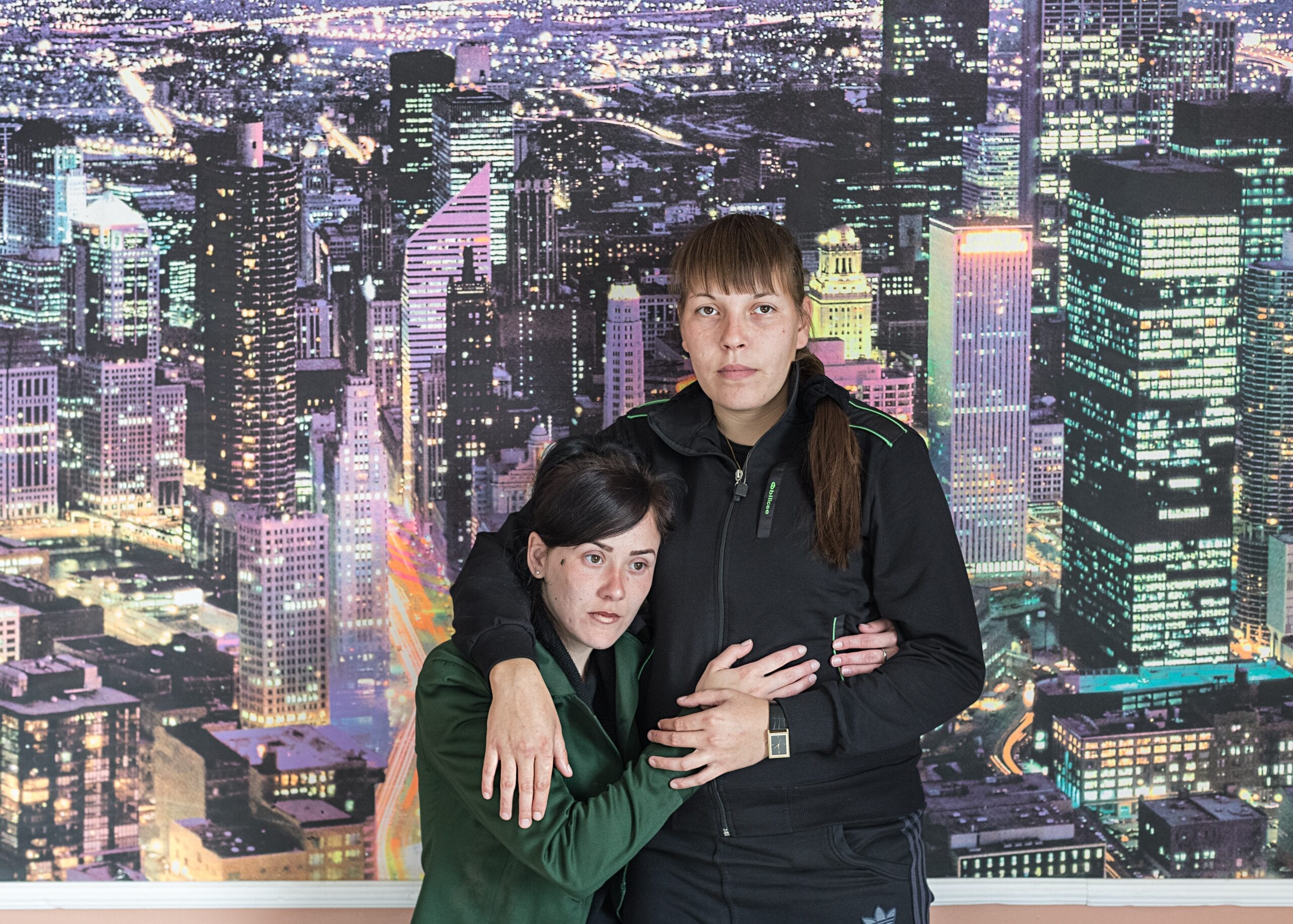
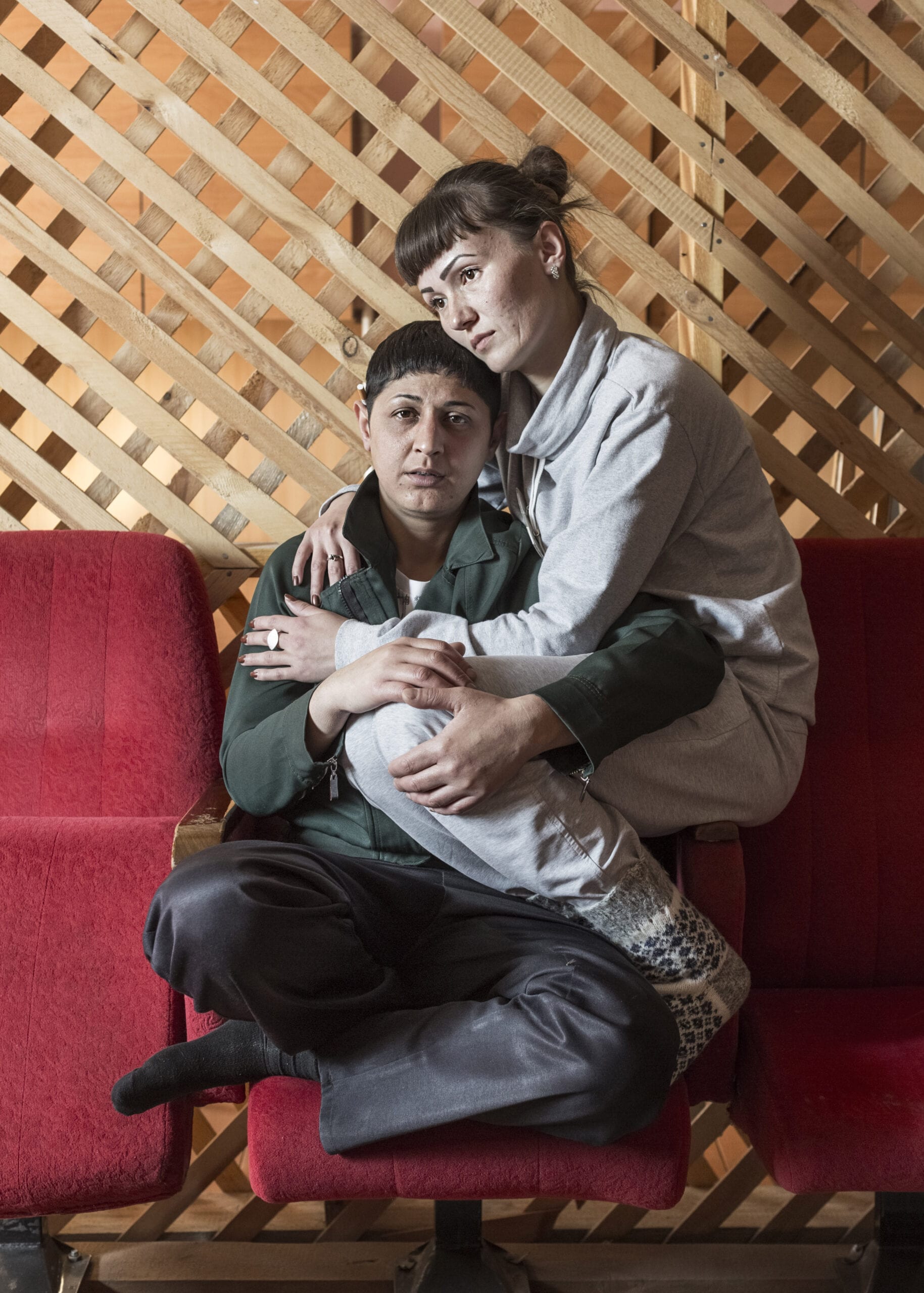
The project about women’s prisons is a part of a trilogy that is centered around the lives of women in closed institutions. The impulse of research of such communities arose in a reflection of my teenage period spent at the closed rehabilitation boarding school. I spent a few months, working in several prisons for women in the Siberia.
In a paradoxical way, in Russia, the almost exultant romanticization of the prison with all rogue romanticism coexists hand in hand with the squeamish rejection of daily prison routines and living habits of inmates. It is quite possible that the recognition of a prison as the periphery of the social, as the border of civilization, lies at the very base of this heady mixture of romantic enchantment, revulsion and opaque, viscous fear. Nobody is protected from the caring attention of a flaming eye and its penetrating laser beams. On a macrosocial level, this control is being realized through a dense network of administrative decrees and regulations; on a micro-social ground floor, it is imposed via a mesh of unsaid rules and unwritten sub-tribal protocols. In any case, there is a wide variety of punitive measures and instruments capable of inflicting the punishment of varying degrees of cruelty. In the enclosed space of prison, a woman is always in the position of being watched, observed. She is deprived of any — even fictitious or imaginary — possibility to be alone. Many years of complete nudity and the loss of intimate space cripple a personality that is placed in society as merciless as it sees fit to crimes committed. For me were more important to try to catch women’s inward, self-isolating gaze, their faces and gestures deformed by the constant watchful presence of prison authorities and cellmates; to find bits and splinters of the private and the intimate, brought forcibly out for the communal view and judgment.
Prison is a microcosm of our society, but we tend to think of it as being completely outside it. Russia doesn’t have the infrastructure needed to support people who are released from jail. A lot of them have nowhere to go and no one to help them. They are stigmatized and labeled «criminals». A lot of them, once they enter the system, are forced to commit consequent crimes because when they find themselves free, they have no means to find a job and don’t want to become a burden on their parents. I shot the series to draw attention to the fact that these women need to be rehabilitated after they are released, and need help reintegrating into society.
It would be great if our society got more information about those who stay in prison, what is going on in prisons and gave chance to those who are in need of socialization, job, support… We lack tolerance and latitude, and elementary awareness.
I feel and know that staying in jail my characters don’t stop to be mothers, sisters, teachers, loved ones, grandparents, or just cute girls or personalities. Often if they don’t receive support, upon their release, in most of the cases they return to prison.
In such places you cannot stay alone, you are all the time under surveillance. You have to follow not only official rules but also informal protocols. Outside these walls, in our everyday life, you can cover yourself with a blanket and hide, feeling safety. But in the bedroom where another 50 people live, everyone can remove your blanket just to have a look at the color of your underwear.
